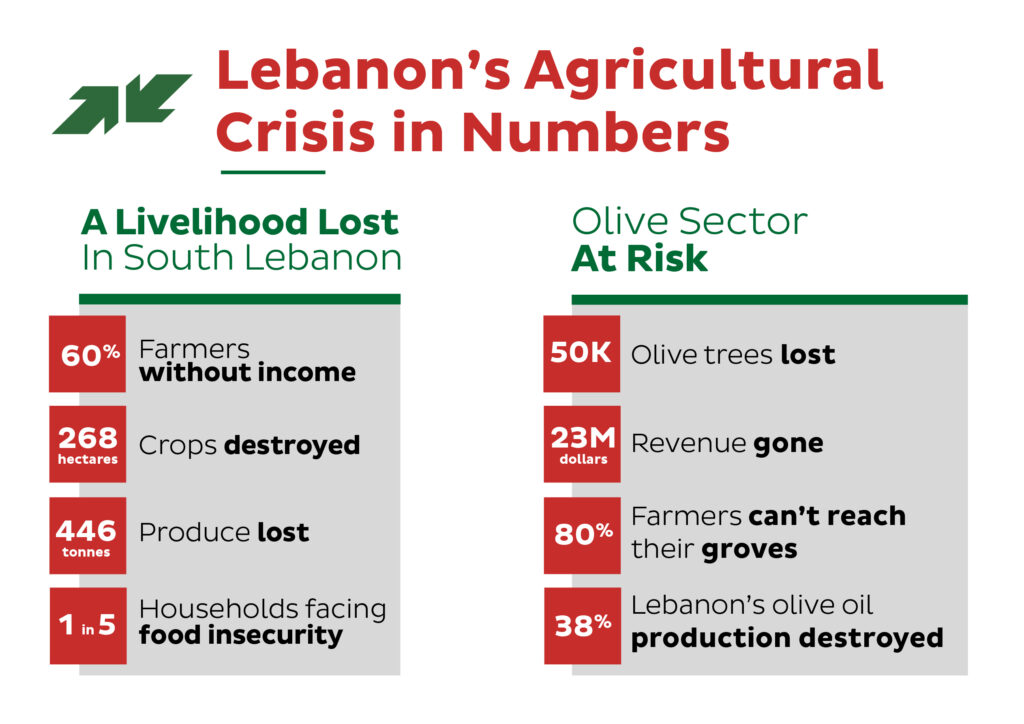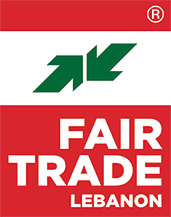Farmers on the Frontlines
Recent conflicts have severely impacted Lebanon’s agricultural communities, creating disruptions that are deeply felt. Lebanese farmers, particularly in the South of Lebanon, have been hit hard. With roadblocks, restricted field access, and disrupted supply chain, daily farming routines have become precarious.
In numbers: - In South Lebanon, where farming sustains entire communities, displacement and bombing have left 60% of farmers without income.
- Over 268 hectares of crops and 446 tonnes of produce have been destroyed, leaving one in five households’ food insecure (Source: FAO - DIEM-Impact Report, Sept 2024).
Olive Oil Crisis: Safeguarding a Precious Heritage
Lebanon’s olive oil is one of our most cherished exports, rooted in centuries of tradition. However, the crisis has hit the olive oil industry with devastating consequences.
More figures from the field:
- In South Lebanon alone, over 50,000 ancient olive trees—some dating back 300 years have been destroyed, leading to an estimated $23 million in lost revenue (AWP; Tahrir Institute & CNRS).
- With 38% of olive oil production affected and 80% of farmers unable to reach their groves (Olive Oil Times), the loss is not just economic but cultural.
|




